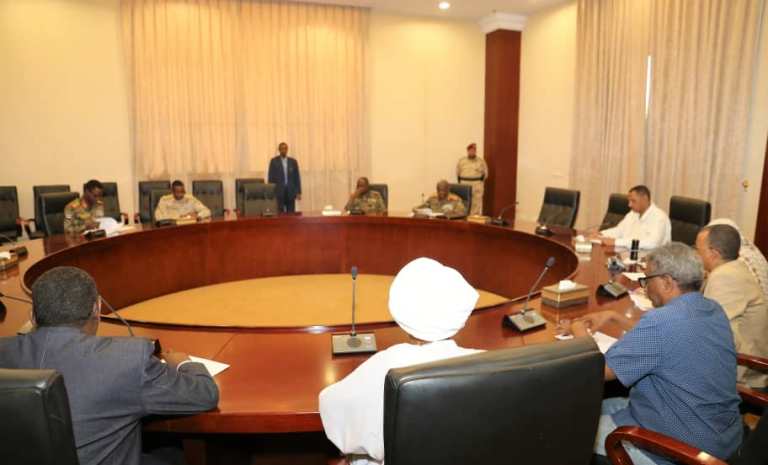Sudan’s opposition demands full power transfer to civilians

June 6, 2019 (KHARTOUM) – The opposition alliance Forces for Freedom and Change (FFC) alliance Thursday said the Transitional Military Council (TMC) should hand over power to civilian-led authority without negotiation.
In a statement released after a decision by the Peace and Security Council of the African Union to suspend Sudan’s membership at the regional body on Thursday, the FFC set three demands representing its position for any future contact the military junta.
The FFC first called for “accountability of the putschist council and all those involved in its crimes since the eleventh of April”.
“The full transfer of authority to civilians, as provided in the Declaration of Freedom and Change” further read the statement.
“The immediate dismantling of the Janjaweed militias and handing over their weapons to the army, and end the bloody rampage in the streets of the cities”.
The Ethiopian Prime Minister Abiy Ahmed will be in Khartoum Friday as he was asked by the PSC in his quality as the head of the IGAD to broker talks between the Sudanese stakeholders, “with a view to speedily establish a civilian-led Transitional Authority in Sudan”.
Negotiations between the military council and the opposition groups stalled over the control of the Sovereign Council, collegial presidency, as the army generals demanded the majority of its members and the chairmanship pretending they want to oversee the 3-year process of transition.
After the army takeover on 2011 and removal of former President Omer al-Bashir, the FFC groups diverged over how to deal with the military junta, as some stressed the need to not compromise with a military body that had included several Islamists generals.
However, the resignation of six generals including the former defence minister Awad Ibn Ouf and others at two different times helped the moderate forces to persuade their allies to accept engaging negotiations with the military council.
(ST)
